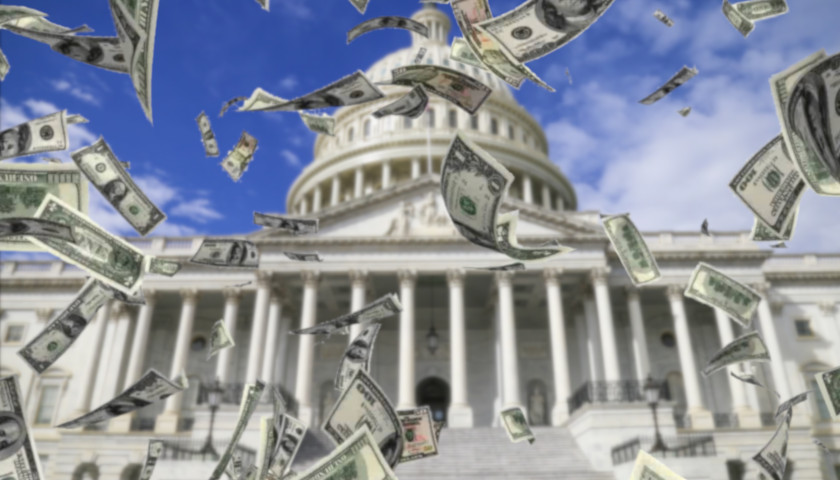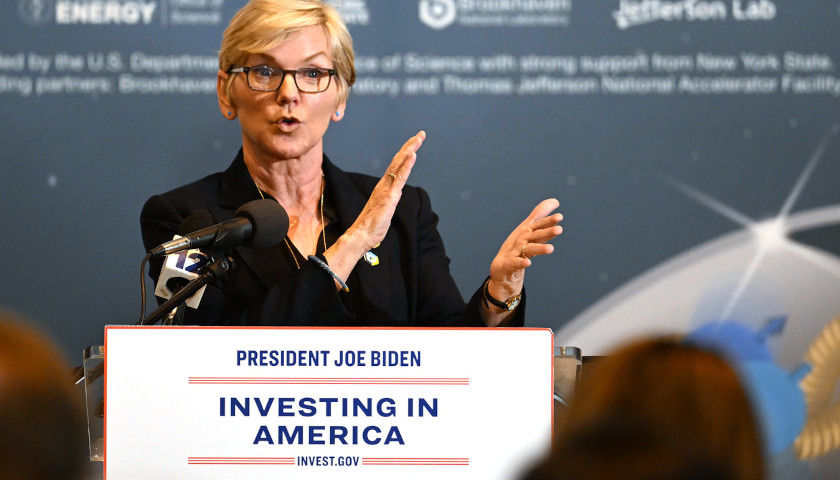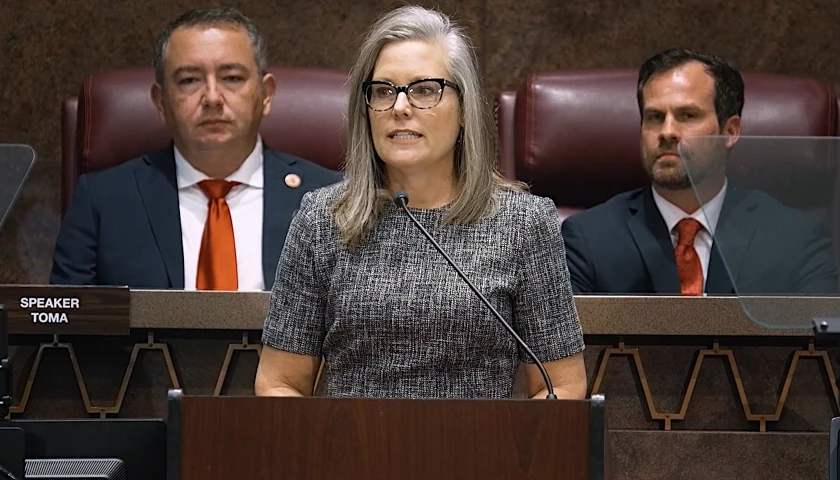by Casey Harper
The Congressional Budget Office released its economic outlook for the next decade and projected record high debt levels compared to the nation’s Gross Domestic Product.
The CBO projected a decrease in the deficit compared to the major COVID-era spending spree that helped fuel inflation to its current high levels.
“CBO projects that the federal budget deficit will shrink to $1.0 trillion in 2022 (it was $2.8 trillion last year) and that the annual shortfall would average $1.6 trillion from 2023 to 2032,” CBO said. “The deficit continues to decrease as a percentage of gross domestic product (GDP) next year as spending related to the coronavirus pandemic wanes, but then deficits increase, reaching 6.1 percent of GDP in 2032. The deficit has been greater than that only six times since 1946.”
The CBO also predicted a slight decrease in the debt to GDP ratio but said that would be followed by record high debt levels.
“Relative to the size of the economy, federal debt held by the public is projected to dip over the next two years, to 96 percent of GDP in 2023, and to rise thereafter. In CBO’s projections, it reaches 110 percent of GDP in 2032 (higher than it has ever been) and 185 percent of GDP in 2052,” CBO said. “Moreover, if lawmakers amended current laws to maintain certain policies now in place, even larger increases in debt would ensue.”
Experts raised the alarm about these numbers and said major deficits “are here to stay.”
“The combination of expiring COVID relief and massive inflation, along with the economic recovery, have helped provide a fiscal reprieve,” said Maya MacGuineas, president of the Committee for a Responsible Federal Budget. “But trillion-dollar deficits are here to stay, and $2 trillion deficits will arrive by 2031. Meanwhile, debt is slated to reach a record 110 percent of GDP within a decade and could rise even further if lawmakers extend various expiring policies.
“Today’s report also highlights disturbing fundamentals – the rising costs of Social Security, health care, and interest on the debt will continue to eclipse revenue growth, and the debt will keep rising,” she added.
MacGuineas said the slight reduction in deficits is no reason for celebration since the debt is only expected to grow even more over the next decade.
“Rather than declare victory and abandon deficit-reduction efforts, policymakers should work together to truly bring our deficit and debt under control,” she said. “Rather than celebrating the false victory of returning from fiscally-disastrous to fiscally-bad, we should work to achieve a position of actual fiscal health.”
– – –
Casey Harper is a Senior Reporter for the Washington, D.C. Bureau. He previously worked for The Daily Caller, The Hill, and Sinclair Broadcast Group. A graduate of Hillsdale College, Casey’s work has also appeared in Fox News, Fox Business, and USA Today.









Give me a break. Our DEBT/GDP is currently 130%. This accounting trick of excluding debt that the government supposedly “owes to itself” is a lie to make the DEBT/GDP appear lower than it really is. Whether owed by the government to itself or not, the money has already been spent, cannot be retrieved to pay down the debt, cannot be ignored or defaulted on.